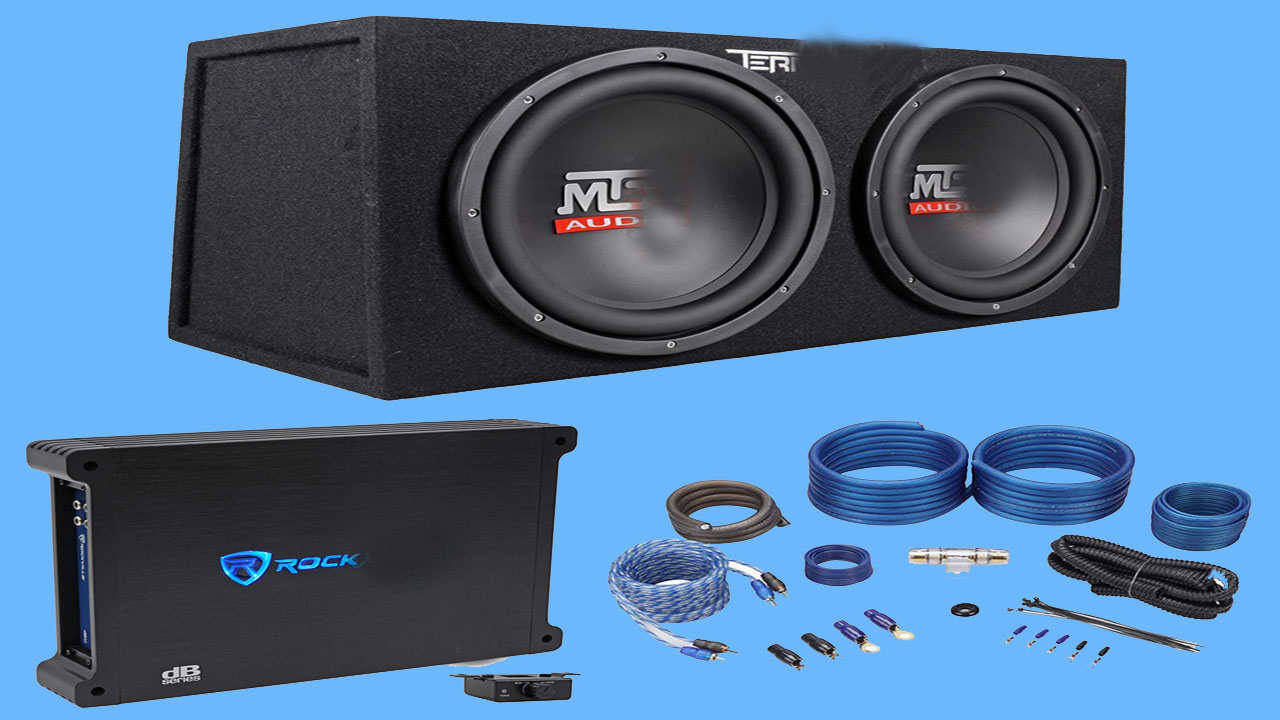When it comes to powering a 1800W subwoofer, you should look for an amplifier that can deliver between 1200 and 2000 watts RMS power at 4 ohms, with a 4-ohm stable output.
Basically, for a 1800W subwoofer with a nominal impedance of 4 ohms, it’s important to select an amplifier that can supply the appropriate amount of power without damaging the sub. In general, you should look for an amplifier that can deliver between 1200 and 2000 watts RMS power at the subwoofer’s impedance.
Assuming the subwoofer has a nominal impedance of 4 ohms, you’ll want an amplifier that can deliver 1200-2000 watts RMS at 4 ohms. This means you’ll need an amplifier that is rated for at least 300-500 watts RMS per channel at 4 ohms.
It’s important to note that the amplifier’s peak power rating is not as important as its RMS power rating. Peak power ratings can be misleading and are often exaggerated. RMS power is a more accurate measure of the amplifier’s continuous power output.
Additionally, it’s important to match the impedance of the amplifier and subwoofer. If the subwoofer has a nominal impedance of 4 ohms, you should look for an amplifier with a 4-ohm stable output.
How many amps is needed for 1800 watts?
To calculate the amperage required for 1800 watts of power, you need to divide the power (in watts) by the voltage (in volts) of the circuit. Assuming a standard household voltage of 120 volts, the amperage required for 1800 watts of power is:
1800 watts / 120 volts = 15 amps
So, you would need a circuit or device that can supply at least 15 amps of current to power an 1800 watt load. It’s important to note that in real-world situations, the actual amperage draw may vary due to factors such as the efficiency of the device, power fluctuations, and other variables. Therefore, it’s always a good idea to check the manufacturer’s specifications and consult a professional electrician if you have any questions or concerns about electrical safety.
Is 1800 watt subwoofer good?
The wattage of a subwoofer alone is not enough to determine whether it is good or not. There are many other factors that come into play, such as the quality of the subwoofer’s components, design, construction, and performance.
That being said, an 1800 watt subwoofer can certainly be considered powerful, especially when compared to lower wattage models. However, the overall sound quality and performance will depend on factors such as the frequency response, sensitivity, and distortion levels, as well as the subwoofer’s ability to handle different types of music and audio content.
Ultimately, whether or not an 1800 watt subwoofer is good will depend on your specific needs and preferences. It’s important to do your research and read reviews from other users to get a better understanding of the subwoofer’s performance and overall quality.
How many watts is best for bass?
Most speakers and subwoofers will have a recommended power range or RMS rating that reflects the optimal power handling capabilities. For example, if a subwoofer has a recommended power range of 100-500 watts RMS, it’s generally best to aim for an amplifier that can deliver power in that range. Going significantly above or below the recommended power range can result in distortion, damage to the speaker or subwoofer, and/or reduced sound quality.
What amp is best for subs?
The best amplifier for subs will depend on a variety of factors, including the size and type of the subwoofer, the desired volume level, and the overall system design. Here are a few things to consider when selecting an amplifier for subs:
- Match the amplifier’s power rating to the subwoofer’s specifications. In general, it’s best to select an amplifier that can deliver power in the same range as the subwoofer’s recommended power handling capabilities. For example, if a subwoofer has a recommended power range of 100-500 watts RMS, you should look for an amplifier that can deliver power in that range.
- Consider the amplifier’s impedance rating. The impedance of the amplifier should match the impedance of the subwoofer. For example, if the subwoofer has an impedance of 4 ohms, you should look for an amplifier with a 4-ohm stable output.
- Look for an amplifier with a low distortion rating. Subwoofers are designed to reproduce low-frequency sounds, which can be particularly susceptible to distortion. A high-quality amplifier with a low distortion rating can help ensure clean and accurate bass reproduction.
- Consider the overall system design. The size and type of the enclosure, the number of subwoofers, and the desired volume level will all play a role in determining the best amplifier for subs. For example, a larger enclosure may require a more powerful amplifier to achieve the desired volume level, while multiple subwoofers may require an amplifier with multiple channels.
Overall, selecting the best amplifier for subs will depend on a variety of factors, and it’s important to do your research and consult with a professional if you have any questions or concerns about your system design.

